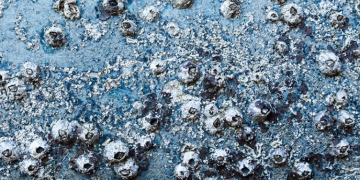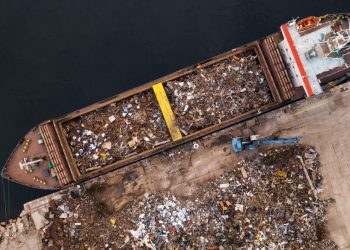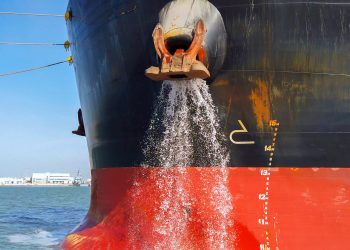Ballast Water Convention Ratified by Germany
 Germany is now the 37th flag state to ratify the Ballast Water Convention – a clear signal to the industry that ratification is imminent. Germany’s Ambassador to the United Kingdom, Georg Boomgaarden, signed both Conventions, in the presence of IMO Secretary General, Koji Sekimizu, at the IMO’s headquarters in London.
Germany is now the 37th flag state to ratify the Ballast Water Convention – a clear signal to the industry that ratification is imminent. Germany’s Ambassador to the United Kingdom, Georg Boomgaarden, signed both Conventions, in the presence of IMO Secretary General, Koji Sekimizu, at the IMO’s headquarters in London.
Whilst the number of countries required to ratify the convention has already been met, a persistent problem has been the stipulation that in addition to ratification by 30 states, 35% if the world’s tonnage must be represented through those states.
Currently, the total tonnage sits at 30.32%, 4.68% short of the requirement, and therefore further states in addition to Germany will be required to ratify the legislation before it can be put into force.
The BWM Convention will enter into force 12 months after ratification has been achieved.
“The ratification of the two Conventions is another step towards improving maritime safety and environment,” Peter Ramsauer, Germany’s federal minister of transport, building and urban development, told the Embassy of the Federal Republic of Germany, London.
Though the current list of countries who have ratified the convention features Mexico, its Latin American neighbour Panama is notable by its absence. A number of ship building leaders are present on the list – of which Germany is newly one – a number of other major ship building countries are absent; China, India, and Japan are missing for example.
Perhaps it is ship building nations that have the most to loose from the ratification of the Convention, as shipbuilders costs will go up once installing newbuildings with BMWS becomes mandatory.
According to the IMO, ships carry roughly 3-10 billion tonnes of ballast water globally every year and currently, there is no regulation that curtails the movement of one ocean’s water with its associated eco-systems into another ocean due to ballast water being gathered and dumped during voyages.
Chinese mitten crabs – considered a delicacy in Asia – have invaded Europe causing huge amounts of damage by burying into river banks and causing their collapse.
Source: London.diplo.de
























































